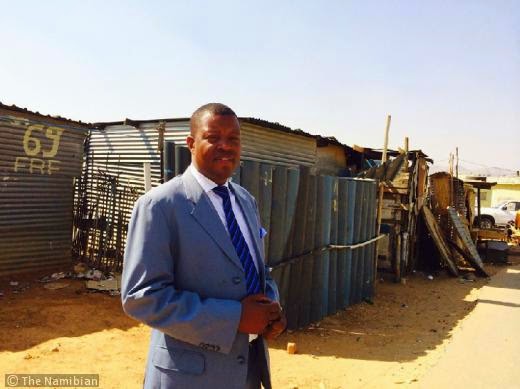The Namibian education system reshuffle
The honourable minister of Education David Namwandi's plan
to change the medium of instruction from English to Vernacular languages is not
a bad move. Let me do a quick intro: The Namibian Education Minister announced
a radical change in language policy, English would no longer be the medium of
instruction in the lower primary phase. This means that from grade 1 – 5
children in the Namibian Education system will be taught in their mother tongue
(Native language). But like all grand plans it needs to take input and be fine-tuned.
Most countries that implement this policy only have one or two prominent
Vernacular languages, not the 11 or 13 that we have.
Suggestion 1:
Teach the kids in their mother tongue from grade 1 - 3, but make sure that
English as a subject clocks twice as many hours as the other subjects so the
kids can switch to English with more ease (improvise by adding drama, poetry
and film as teaching aids).
Suggestion 2:
Instead of waiting until grade 6, the change from Vernacular to English as a
medium of instruction should take place at the start of grade 4. Making sure
that a chosen Vernacular language as a subject clocks twice as many hours as
the other subjects (improvise by adding drama, poetry and film as teaching
aids). A child's capacity to absorb information is peak between the ages of 7 -
13 (scientifically proven). Waiting until grade 6 is a huge banana skin, I know
most of my friends who learned foreign languages, music and subjects like
crafts and home economics in school starting from grade 3 or 4 are all better
than my other friends who started in grade 8.
Suggestion 3:
Keep the option for parents to have their children taught in English with
Vernacular as first language. After all this is a democracy, we can't enforce
Vernacular languages knowing that we have minorities and also to cater for kids
with multiple ethnic backgrounds.
Suggestion 4:
Next time you want to change the system, ask the 20% who annually preform
amazingly well in the current system how they did it. Most South African
universities have a small community of Namibian students, which just shows that
when the system really works it produces good quality. I went to public school
all my life, my primary school was really shit but I have three degrees and
counting to my name. What the minister is doing is like training short distance
sprinters and ignoring what Frankie Fredericks advices them to do. Fix the
system with the aim of improving quality not increasing passing percentages.
I don't know how this new plan will work especially in
Windhoek, Tsumeb, Walvis and Swakopmund where there are up to 6 or seven ethnic
backgrounds across all grades.
Separating kid’s at the most crucial stage of their evolution as human
beings along ethnic lines is strange, seeing as we already come from ethnically
separated communities and originate from regions that are geographically
segregated according to ethnicity. If the minister doesn't get it right it will
wreck the system beyond repair.


Wow, Fillemon! Good points you have right there! I for one, also failed to understand why English as medium of instruction will start only in Grade 6, especially considering that it is the official language of our country. I do not know where they conducted that research that led them to conclude that it is best to start it in Grade 6. I agree with your 3rd suggestion mostly. I know it is good for the children to know their roots, where they come from and all, and maybe that is the reason the Ministry of Education came up with this but if only thy could make it optional. I am sure some parents will now be forced to take their children to private schools because of this!
ReplyDeleteThanks. If you fail to plan, then you plan to fail. Only time will tell, the system reshuffle might work and surprise us all but odds are that it will have so many problems that it will never fully be implemented.
ReplyDeleteThis comment has been removed by the author.
ReplyDeleteWell put. I'm all for the idea, but the practicality needs to be looked into. The only issue I have with keeping Vernacular languages, as great idea as it is, is that the world is becoming one global community and the more dominant cultures are overshadowing less prominent cultures around the world. The way the world interacts dictates what people want in their lives and what they strive for. If your culture doesn't exemplify your desires, then most people opt to rather pursue their dreams. I love my mother tongue and wish I could have a deeper understanding of it, but from a global perspective, how relevant is it, especially when it comes to how i interact with everyday life. Just like Afrikaans, it's great, but outside Southern Africa, how relevant is it? Vernacular languages will only thrive if we create an environment for them to and/or they are relevant in a self sustaining community. Like Chinese for example, that has it's own market and a person can live their whole life from primary, secondary, tertiary and even adulthood without actually needing something else from other cultures.
ReplyDelete